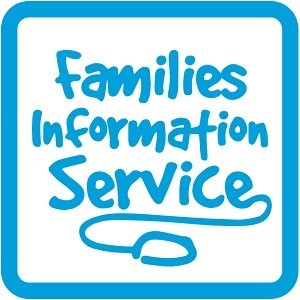Local Offer - Support for all Learners
This page explains how children and young people are supported in their education settings.
On this page, you can find:
Ordinarily Available Provision
In Doncaster there is an expectation that children receive the best education possible, this is also referred to as ‘ordinarily available provision’. This means that all mainstream schools and early years setting should provide High Quality Teaching and learning strategies to meet their learners' needs through their classroom planning and school budget. There is guidance that helps schools to be consistent with this support that can be found here: Ordinarily Available Provision
What is High-Quality Teaching?
High-Quality Teaching (HQT) (previously Quality First Teaching) is simply a way of describing a range of inclusive teaching strategies that are designed to effectively engage, motivate and challenge all learners in a setting. HQT is part of the ‘ordinarily available provision’ in settings and forms a big part of meeting the needs of children with SEND. Improving HQT will improve outcomes for learners with SEND.
Some of the key elements of High-Quality Teaching include:
- Giving children clear instructions
- Adapting the learning environment
- Responsive planning
- Building positive relationships
- Making reasonable adjustments
The video below is a really useful introduction to high quality teaching and how this should be delivered to learners.
What is Adaptive Teaching?
Adaptive teaching is teaching that responds to the strengths and needs of all pupils in a class. It means that teachers should adjust their approaches to teaching and learning to enable the whole class to participate rather than setting different outcomes or tasks for different learners. It takes account of the different learning styles that children and young people have. For instance, some learners may be able to understand a topic by listening to a teacher talking, but others understand better when they have a ‘hands-on’ practical experience.
Read more about Adaptive Teaching or watch the video below.
What is Differentiation?
Differentiation is a key component of HQT and it is expected that the teacher will differentiate for their learners. Differentiation means making changes to the content, presentation, environment or expectations to meet an individuals needs. Teachers must do everything reasonable to identify any special education need or any child gifted in a particular area.
Read more about Differentiation.
Examples of Adaptive Teaching and Differentiation:
During a lesson where children are learning to use a comma and apostrophe the teacher could adapt their teaching by:
- Providing word banks to help some learners to identify key words they will need
- Providing some learners with visual instructions so they can understand the task
- Approaching some children, more than others to check they understand
- Providing some children with a worksheet containing visual or written support
- Providing some learners with a visual timer so they know how long they have to complete the task
During a lesson where children are learning how to tell the time the teacher could adapt their teaching by:
- Providing some students blank clocks, so some learners can write onto these to practice
- Adapting their seating plans so that some children are placed in a certain way to help their learning
- Providing some learners with a watch or clock so they can see it whilst learning the time
- Enlarging worksheets for some children
- Providing some children with a coloured overlay for their work
- Providing written examples of the words they will need in French
This is really important for children with SEND, because rather than have tasks set that are different to their classmates simple adaptations can create a more inclusive classroom and enable them to access the same learning.
What are the next steps if further support is needed?
Most learners will make good or better progress with inclusive HQT and reasonable adjustments as described above (Universal Level of The Graduated Approach). Some children and young people may require time-limited intervention programmes and additional support in order to secure effective learning and increase the rate of progress (Universal Plus Level of The Graduated Approach) for example additional Read Write Inc sessions.
The school or setting has a responsibility to increase the level of support provided based on a child or young person's needs. Some children and young people may require support that is additional or different from their peers (Targeted Level of The Graduated Approach) in order to secure effective learning and increase the rate of progress. This is known as having special educational needs and the support provided is known as SEN support or special education provision.
FIND OUT MORE ABOUT SEN SUPPORT
Back to Education and Learning
Downloads & Resources
Display your introduction over featured image?: No

 City of Doncaster Council’s
City of Doncaster Council’s